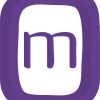This is the degree to which individuals have the ability to find, understand and use information and services to inform health-related decisions and actions for themselves and others. This applies as much to alternate and complementary medicine (CAM), holistic and natural healing as is does to allopathic medicine or any other form of traditional healing/medicine.

Many South Africans do not have adequate health literacy. This means accessing, understanding or appropriately using health information is difficult for most people in our country. This can lead to poorer health, more use of hospitals, difficulty controlling medical conditions and medication mistakes. Furthermore it often places CAMs and holistic and natural healing modalities out of reach of the average South African.
Enhancing health literacy has a big impact on decisions people make that affect their health and wellbeing and has been described as a better predictor of health than education, socio-economic status, employment, racial background or gender. Poor health literacy makes it harder for people to access alternative health services – they do not know whom to see and when to see them in order to care for themselves and manage their health effectively.
Those with poor health literacy:
- Have less knowledge about illnesses, injuries and treatment options – in particular alternative and complementary medicine and holistic and natural healing – what causes ill health and the importance of healthy lifestyles;
- Find it harder to understand and remember information;
- Are more dependent on service providers and health and community services, but less likely to use programmes to keep themselves healthy or to take action early
As the CAMs, holistic health and natural healing community, what can we do about health literacy?
We all have a role in making it easier for people to access, understand and use health information and services. This includes how we communicate, provide services and respond to people’s needs, for example:
- Providing the best information for the needs of each person and checking it is understood;
- Providing information in a variety of formats, including written and spoken information, pictures, diagrams, models and audio-visual demonstrations;
- Using simple language.
Very often we speak of complex concepts and in jargon, using industry-accepted references, understood by only ‘those in the know’.
In every edition of Odyssey we place the spotlight on a modality: The article by an industry thought leader, supported by industry advertisements. This goes a long way towards enhancing health literacy, as the content is concise, informative and clear and includes:
How does it work?
What can I expect in a treatment?
What are the benefits?
Where can I find a therapist/practitioner?

